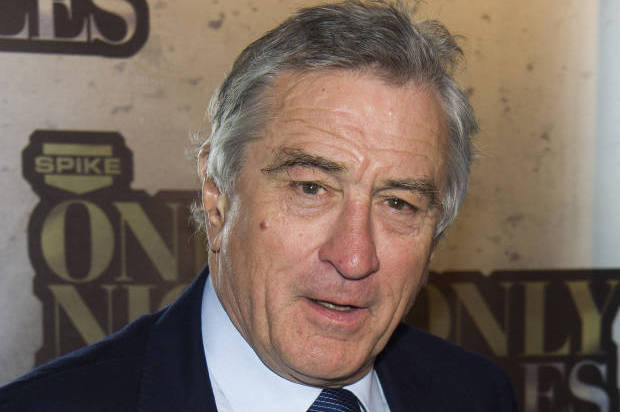It must be hard to run a film festival and have to decide which films to screen. It’s probably a lot of fun as well, but imagine the carping and second-guessing when a certain film is let in, another one isn’t, and people disagree with your judgements. If you’re a celebrity, you become even more of a target.
So it looked for a while like Robert De Niro just made an honest mistake by allowing the anti-vaccination film “Vaxxed: From Cover-up to Catastrophe” into the Tribeca Film Festival, which he co-founded. First, he issued a statement saying that he wanted to spark a discussion, because the issue “is very personal to me and my family.” Maybe De Niro just didn’t follow the debate, didn’t know the reputation of the director, Andrew Wakefield, the British surgeon who authored a now-discredited study that linked vaccines for measles, mumps, and other diseases to autism. He’s surely a busy guy.
Tribeca’s staff pulled the film from the festival after protests, and it seemed like the issue was closed. But the actor has now messed things up by appearing on The Today Show and calling the film “a movie people should see.” He admits he hasn’t followed the issue, but says “Definitely there’s something to that movie.” He’s the parent of a teenager with autism, and says he expects to have a role in the conversation.
De Niro’s larger point is a fine one: Let’s have a debate about the issue, and if the film isn’t persuasive, it will fade away. “People can make their own judgment…. Let’s find out the truth,” he says. Who can argue with that?
The problem is, Wakefield’s study was so bad he is no longer even allowed to practice medicine in the United Kingdom.
There is no evidence that these vaccines lead to autism, and a lot of evidence that vaccines keep children from getting sick. The more families that refuse vaccinations for their kids, the more that herd immunity it compromised, and everyone is put at risk. The medical world has come down against the anti-vaxxer case pretty unambiguously.
Here’s how the New England pediatrician who writes under the name Russell Saunders describes it:
For a sense of perspective, it’s important to note that Wakefield’s now-retracted study involved 12 total subjects. An investigation later reported that data about every single one had been altered or misrepresented in some way. By way of contrast, one study of Finnish children confirming the safety of the MMR vaccine followed 1.8 million children over a period of 14 years. Another study out of Denmark that showed similar findings included over half a million children.
And the film’s path shows what can happen when a bad idea spreads. The movie will now play at the Angelika Theater in New York and at Laemmle cinemas in Santa Monica and Pasadena. People seeing the movie could come out of it persuaded of something that scientists have examined and decided was imaginary.
Ideally, we’d have a pure marketplace of ideas and bad ideas would die as good ones thrived. But anti-vaxxer hysteria is still strong enough, thanks in part to celebrities who appoint themselves experts on the subject, that screening this film is like crying fire in a crowded theater. De Niro is clearly trying to help other families like his; it’s hard to get too angry at him for this, even if he’s wrong.
There’s so much misinformation in the Internet age that we really don’t need a legendary actor adding to it. A controversial feature film is one thing, but a documentary about a made-up connection can be very dangerous: Until he’s done some real research and talked to doctors who still have their licenses, De Niro should stay away from this one. Let’s hope that in the next interview he does, he speaks about the 40th anniversary of “Taxi Driver” instead.

